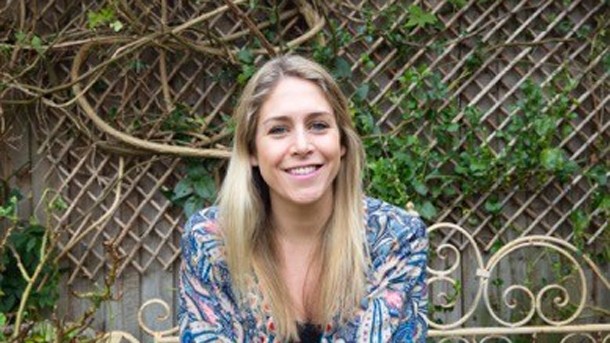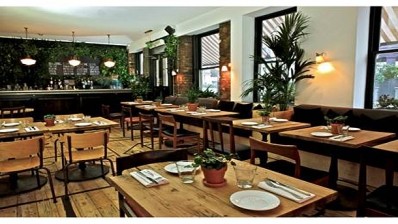SMALL TALK
Social Pantry founder Alex Head on growing an ethical food business

Give us a brief overview of Social Pantry
We have a café on Lavender Hill in Battersea and also an events and contract catering company which operates in a unit in Wandsworth. We deliver to offices and cater for events. The events company took shape about six years ago and it has all grown quite quickly with the café opening three years ago. There’s a big need in London for offices to be fed a nutritional and exciting lunch and we're doing that.
You highlight the use of seasonal and local produce in your marketing message. Why is this so important to you and Social Pantry?
It’s important to me to run my business in a way I’m proud of and it’s great when that’s incorporated into trends, but that’s just half of it. People are starting to recognise and see it as important when making a decision of who to go with. We were chosen by one client, an ethical charity, because of our sustainable credentials. They looked closely at our suppliers before they committed, so it has been picked up on and recognised by our customers, but that's not the main driver for me.
London is brilliant for food, and it’s an exciting time to be in the market. There is lots of attention on using sustainable produce and it is important for my morals and in how I grow my business, but using seasonal produce especially is so important in menus to get the best quality. When I put together menus I try and use the best produce available, obviously local is good too.
You've been working with the Key4Life charity (set up to help reduce youth offending through mentorship and training) how has this worked in your business?
What has been great about growing the business quickly is that I can offer opportunities to people who may have followed a different path through life. Half of me loves catering and providing good food to London and the other half loves giving these boys an opportunity because I believe they deserve that.
We offer a three day taster to explain what it would be like to work in a catering company. I then might employ any of the boys when I have a position to fill.
They [ex-offenders] might come on board as a kitchen porter or a server, but like any other employee they have to prove themselves and if it works they become a member of the team.
It’s not just great for the ex-prisoners, but it’s great for the team. I was really proud of Social Pantry when I started looking into it, all the staff were really welcoming and so receptive of the first person we took on through the charity. Everybody jelled and accepted him and as a result some of the staff now mentor other ex-prisoners.
I’ve got people from underprivileged and incredibly privileged backgrounds to work for me and it’s great for the whole team to bond and get to know each other. I’m really proud of the staff at Social Pantry making it a place to introduce people to. It’s not a charitable position, the boys have to want to be there, but it works for us.
How do you retain the friendly culture you have as your business grows?
About 18 months ago, I introduced a mentorship scheme which gives every new starter a mentor. It’s generally someone in a similar role in the unit they're in.
The mentor will talk to the new starter about the brand and practical things, such as when you get paid and how holiday works. They are there to answer all the questions around admin and other areas, which, when you start can be overwhelming. This way they can feel secure about what they’re doing and they learn a bit about the brand, but mentorship is also a way of recognising opportunities for cross-training or promotion in the company.
This way we can easily find out what areas people need training in or when they may have outgrown their role. It helps keep them engaged and helps with retention. I always think if they come to work here they should enjoy it, that’s why we work hard on making sure that happens.
What are your future plans for the business?
I don’t like to say too much, but growing the office catering is a natural step. There’s a big need in London for offices to be fed a nutritional and exciting lunch. Running parallel to that is the events side as there’s always the need for catering at parties and meetings.
We are also going to be launching an online shop this month, allowing customers to order food for delivery online. We need to embrace the delivery market and sit alongside the Deliveroos of this world. It's important to embrace it and not run away from it. We know we can deliver it ourselves quickly, so we're excited about that.
You might well see another café pop up in the next year or so too, you never know.













